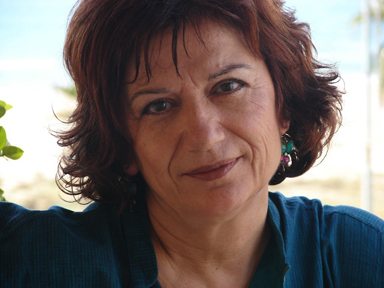
Dilara Balcı, in her book that gives a detailed account of how non-Muslims were represented in the Turkish film industry until the 1980’s, tells an anecdote that elucidates a great deal the environment in which Armenians, the descendants of genocide survivors, in Turkey led their lives.
In 1979, the late Nubar Terziyan, one of the veteran actors in Turkish cinema, put an advertisement in several newspapers to express his condolences for the death of Ayhan Isik, another Turkish star famous for his good looks. The advertisement read: “Ayhan, my son, the world is ephemeral, death is the fate of us all, yet you will never die, because you will always live in our and in millions of others’ hearts. This is a blessing for you. … Your uncle, Nubar Terziyan.” It was not long before the family of Ayhan Işık gave a counter-advertisement to the press, meant as a public announcement. It read: “An important correction: There is no connection whatsoever between the advertisement undersigned ‘Your uncle, Nubar Terziyan’ and our beloved Ayhan Işık. … We regretfully announce as we see it necessary.” (http://www.radikal.com.tr/hayat/rumlar_fahise_ermeniler_pansiyoncu_yahudiler_tuccar-1149673)
As in many cultures, “son” is a term of endearment in Turkish, used by elders when addressing a beloved youngster. And “uncle” is its counterpart, used by a youngster in addressing a close and dear elderly person. Despite this very well-known fact, the slightest possibility that someone could take it seriously and think that Ayhan Işık indeed had a family relation with Terziyan terrified (and at the same time, infuriated) Işık’s family to such an extent that the deep sentiment originally expressed was forgotten, and replaced with a public display of racism.
‘Geography of genocide and denial’
Nubar Terziyan’s humiliation and the Işık family’s response were only one of the numerous daily manifestations of life in a “post-genocide denialist habitus,” as Talin Suciyan calls it in her Ph.D. dissertation at the Ludwing Maximillians University in Munich. The thesis aims to “to write a post-genocide history of Armenian existence in Turkey that remained in the geography of genocide and denial: The crime continued to be reproduced by denial and victim and witness continued to live side by side along with the perpetrators. The testimony of both victim and witness was silenced and denied, and as the perfection of the crime proves, their memories, their testimonies were turned upside down.”
As Suciyan strikingly proves, based on primary Armenian sources, this was when those Armenian households that still remained after the genocide, dispersed throughout the various provinces in Asia Minor, were systematically removed from the region and concentrated in Istanbul where, it was thought, they could be more easily and directly controlled. They were doomed to lead their lives in an “ordinary, banal reality of the post-genocide denialist habitus,” which is the “more invisible rumbling social and political context, the everyday realities.” This habitus was the setting against which anti-Armenian policies, practices, and actions throughout the Republican era in Turkey took—and continue to take—place. This “defines the legal, cultural, social, and economic life of non-Muslims, in general, and the life of other ethnic and religious or political groups whose conflicts with the state remain unresolved,” writes Suciyan, referring to the anti-Armenian campaigns that “have served to reproduce anti-Armenianism in the country, to keep the voices of the victims of genocide away for decades, and to silence those who remained in Turkey.” She continues, “Calling Armenians to represent themselves in an anti-Armenian atmosphere not only meant to ignore the annihilation of their parents, but also to ignore the fact that they were the children of survivors themselves. Thus, Armenians in Turkey were expected to become parts of the denialist habitus by operating within the framework of the same habitus.” Suciyan questions the relevance of the “minority-majority” formula used in defining the issue in Turkey: “It is not a matter of merely legal condition, but the denialist habitus that plays a decisive role, although not only in the production and generation of apparatuses of exclusion; it also constitutes a model of citizenship and, consequently, a social reality embodying an affective attachment to this denialist formation.”1
This “habitus” is diametrically opposed to the post-Holocaust social, cultural, and intellectual environment in Germany, where you cannot walk through the streets of Berlin, for instance, without being reminded of the Holocaust.
Istanbul: scene of crime
How, then, should a truly meaningful commemoration of genocide look like in such a habitus of denialism? In what ways should it be different from genocide commemorations held elsewhere in the world?
Istanbul—where the Armenian Genocide has been commemorated indoors since 2005, and outdoors since 2010—was the capital of the Ottoman Empire, and the crime scene of the Armenian Genocide and the genocide of other Christian peoples of Anatolia. Now it is the biggest city and business center of the country, and it is still a crime scene—this time, of the denial of the genocide.
Given the post-genocide denialist habitus, there is a categorical existential difference, indeed contrast, between the Armenians and Sunni Muslims in Turkey. We, a handful of people organizing these commemorations, are the members of the perpetrator group, no matter how conscientious, righteous, or even courageous we feel. The existential difference can never be erased even by the most selfless efforts we, Turks and Kurds, make against denial, with the best intentions and cleanest conscience. We do what we choose of our own free will and by conscious choice; and the moment we cease to do what we do now, we will be safe. But the families in Samatya, in Feriköy, and in other quarters of Istanbul, where the diminishing Armenian population is concentrated—regardless of their political stance, what they choose, what they do—are under constant threat just because of their names, because of what is written on their birth certificate, because of what they are. They are under constant bombardment of ugly denialism radiating from all sorts of media, and are exposed to hate speech showered from TV channels, the internet, even their neighbors and the taxi driver (as in the case last year when an Armenian woman was beaten by a taxi driver in Istanbul, just because she was Armenian). The existential reality of Armenians in Turkey is well described by Ayda Erbal in her article, “We are all oxymorons!” which she wrote after the assassination of Hrant Dink: “Either you choose to stay relevant and become politically involved and risk getting killed because of your involvement, or you choose to be reduced to total irrelevancy in another country—which is, of course, a subtle way of being killed. Especially if you are an intellectual, journalist, artist, or writer, this second version of being killed over and over again during all those years of undoing and redoing yourself in different, strange, and sometimes hostile cultures, is the only thing that you share with the other lucky (!) Armenians from around the world. Your ability to survive in partial-death situations connects you to your fellow Armenians, especially if they are from the Middle East.”2
Recognition starts on the personal level
There is currently an ongoing debate, within a rather closed circle of people who are involved in the so-called “Armenian Question,” if ordinary Turks and Kurds today should feel guilty over the genocide and shame for being a member of the perpetrator group. It is argued that one cannot be accused and considered guilty of what his/her ancestors have done.
But is personally committing a crime a prerequisite to feeling guilty? Are we only responsible for those actions we carry out ourselves, especially if it is not an isolated case of murder but a genocide, if it is a crime against humanity with an immense, unimaginable scale of atrocities, irreparable losses, and repercussions that will be felt forever by the descendants of the victims, transmitted from generation to generation against the murderous setting of denialism?
An enormous amount of wealth was plundered, and none of us can be sure whether or not there has been any ill-gotten property in our family history. Even if our families are thoroughly clean in this respect, we are the members of a group who reproduced, proliferated, and reinforced its dominance as a majority in the absence of the Armenians and other Christian peoples annihilated just for this purpose. In other words, we became, were made, the agencies that enabled the genocide to serve its purpose. The simple fact is that they were exterminated, and we are here to live and to prosper.
Above all, the crime was and is still being committed in our name, and on our behalf, in the name of Islam and “Turkishness,” which we have naturally, if not voluntarily, inherited, and which we—again, regardless of whether or not it is our own choice—enjoy the privileges of, as non-Armenians and non-Christians. In this way, we inevitably, many of us unintentionally, contribute to this post-genocide denialist habitus. Recognition of the genocide, then, should first begin on a personal level on the part of the members of the perpetrator group, by willingly bearing the responsibility and feeling the shame of the crime committed in the name of the ethnic and religious identity we are attached to, and for the good of the system we are a part of.
A multi-layered responsibility
As for the Turkish left, especially those who lead the efforts for genocide recognition and commemoration, we bear a specific responsibility. Until recently (in historical terms), we—very self-confident in our progressive role, the vanguard of the revolutionary forces—started the history of socialism in this country in the 1920’s with the founding of the Communist Party of Turkey, comprised of Turkish intellectuals, who were completely unaware of the earlier Dashnaktsutiun and Hnchak Party legacy, as well as the Greek and Jewish labor movements. We were internationalists, in solidarity with the oppressed masses of Latin America, Africa, and the Far East, but unaware of the “zone of genocide” we were living in the middle of, unable to see the oppression of the non-Muslim neighbors and Kurds (along with Alevis) under our nose. We were anti-racist, but racism was far away from us—in the United States, in South Africa, and elsewhere in the world. We were totally blind to the very racist environment we were living in. Denial of the genocide, hate speech directed against Armenians and non-Muslims, in general, discrimination, portraying non-Muslims as potential traitors, these were all around us, and yet we didn’t see it for many decades. In this way, we contributed to the denialist habitus. Many Turkish intellectuals refer to the “hundreds of thousands of people marching at Hrant Dink’s funeral” with a visible note of pride. Hrant Dink had to be assassinated for those hundreds of thousands to wake up from their long sleep and stand up.
As the ones who have undertaken the responsibility to commemorate the genocide, our responsibility is further multi-layered and multi-dimensional.
Given the unique circumstances in Turkey, both on the part of the descendants of the victims and the perpetrators, extra and deliberate attention and sensitivity should mark our efforts in Turkey—if, that is, we truly aim to accomplish a meaningful commemoration of the Armenian Genocide on the scene of crime.
There are several important prerequisites for this. First, what is crucial is that Armenians in Turkey as a community, under the above-mentioned existential circumstances, have never been able to collectively commemorate, throughout the decades of denialist habitus, their own dead. They have been and are still deprived of the most essential right to pay homage to and pray for their victim ancestors on April 24 of each year. In this sense, the commemorations that were organized over the past several years were not “their” commemorations. They only took part individually as “participants.” The fact that Turkish human rights activists and anti-racists were the ones who started these events is, in itself, another manifestation of the denialist habitus. How and under what conditions the Armenians in Turkey are allowed to lead their lives in this denialist country should be one of the fundamental concerns while developing the manner and the content of the commemorations.
Secondly, the organizers should keep in mind the deep existential gap that exists between the two sides when deciding on how to commemorate. The two sides involved, the Armenians and Turks/Kurds, are not and should not be conceived or presented as equals, and they should not be called on to form a united body of commemorators, to embrace each other as a step towards so-called “reconciliation.”
A true genocide commemoration is not an “event,” a “demonstration,” or a “political protest” that gives us, the offspring of the perpetrators, the opportunity to feel a certain kind of fulfillment or catharsis, or to be satisfied for performing our “duty”. The duty will never be fulfilled, as genocide is something irreversible, irreparable, unrecoverable, and unforgivable. The commemoration can also not be conceived as a reunion, a mutual embracing of Turks and Armenians, a display of the so-called “sharing of pain and suffering” that would lead to a sort of reconciliation. Because it is not one and the same—it is the Armenians’ pain and suffering, and the Turks/Kurds’ shame and responsibility, on the part of the Muslim peoples of Anatolia, the descendants of the perpetrators.
Therefore a true commemoration of the genocide victims has to lay the ground for Armenians, and only the Armenians, to commemorate their dead, the unburied, the graveless souls still in agony in the face of denialism. And we, the Muslim peoples of Turkey, have no right to “commemorate,” and should only express our responsibility in the ongoing denial and heavy burden of shame for being a member of the perpetrator group.
Notes
[1] Talin Suciyan, “Surviving the Ordinary: the Armenians in Turkey, 1930’s to 1950,” unpublished doctor of philosophy thesis at LMU Institute of Near and Middle Eastern Studies, 2013.2 Ayda Erbal, “We are all Oxymorons,” Armenian Weekly Special Issue, 2008 and on http://azadalik.wordpress.com/2013/01/21/we-are-all-oxymorons, accessed on Sept. 24, 2013.



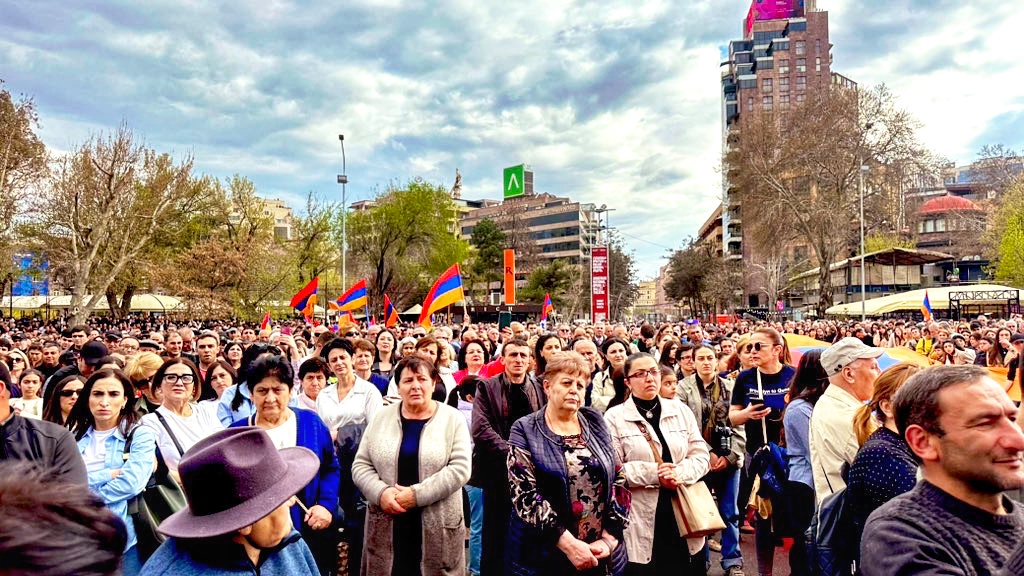
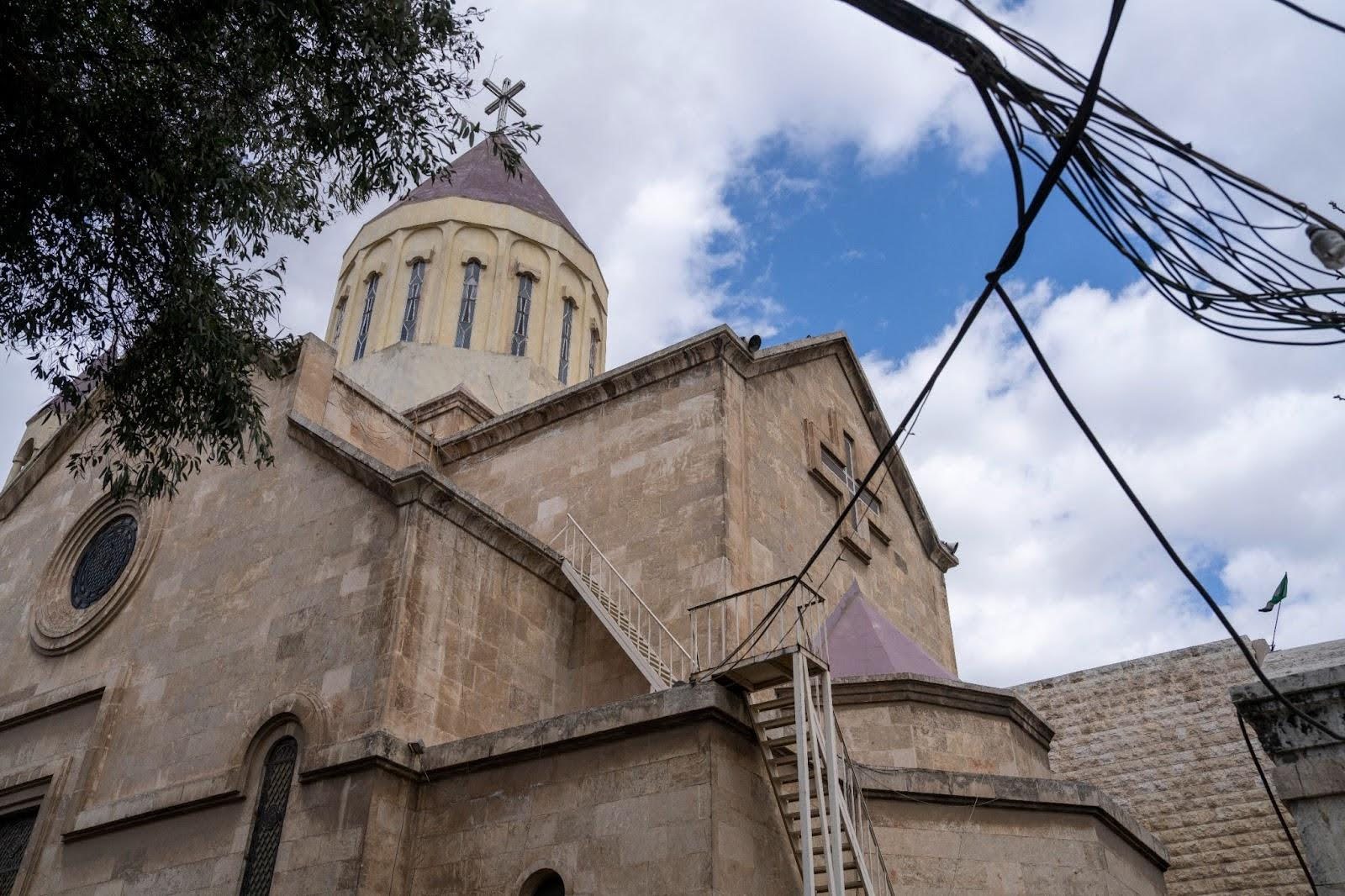
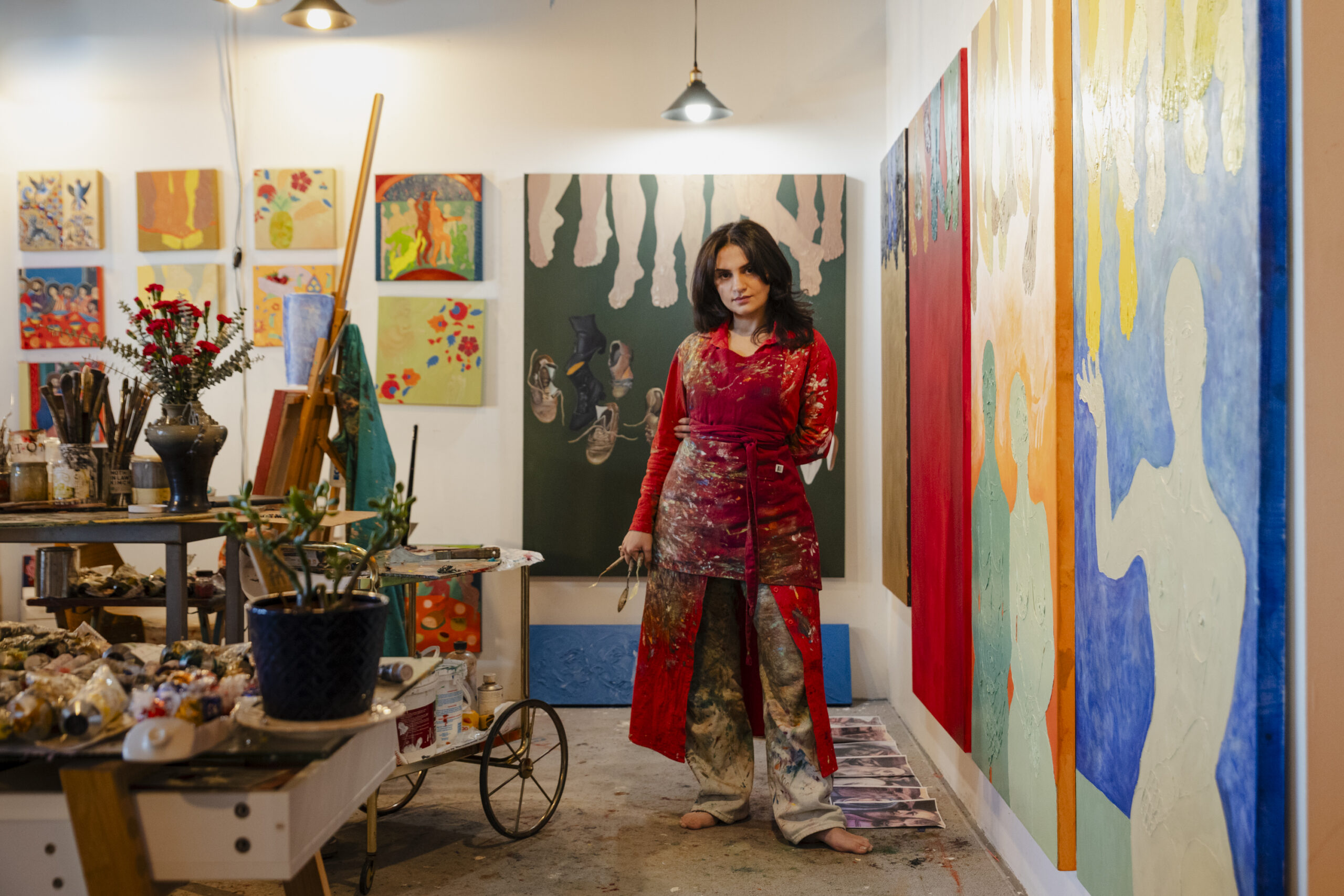
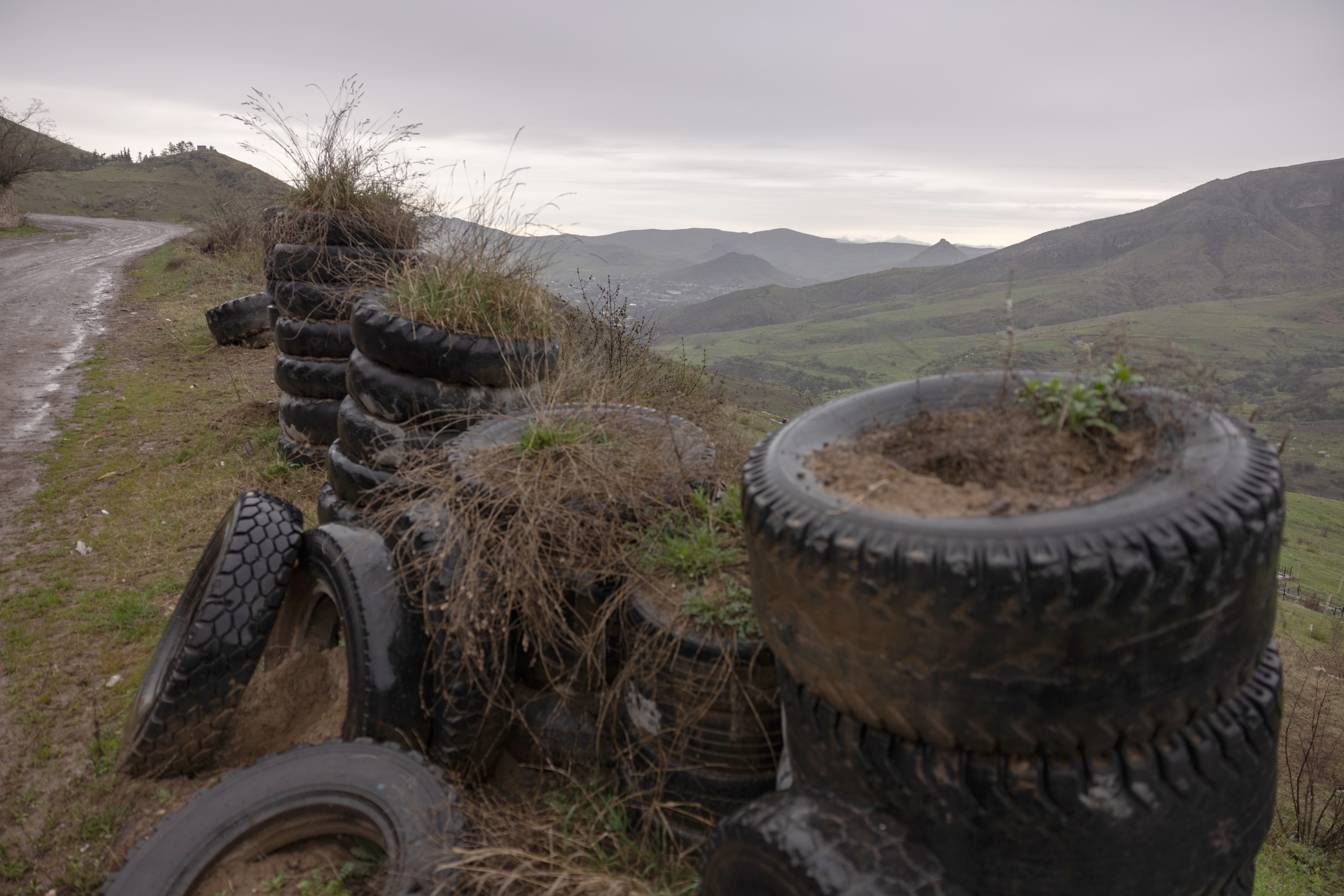
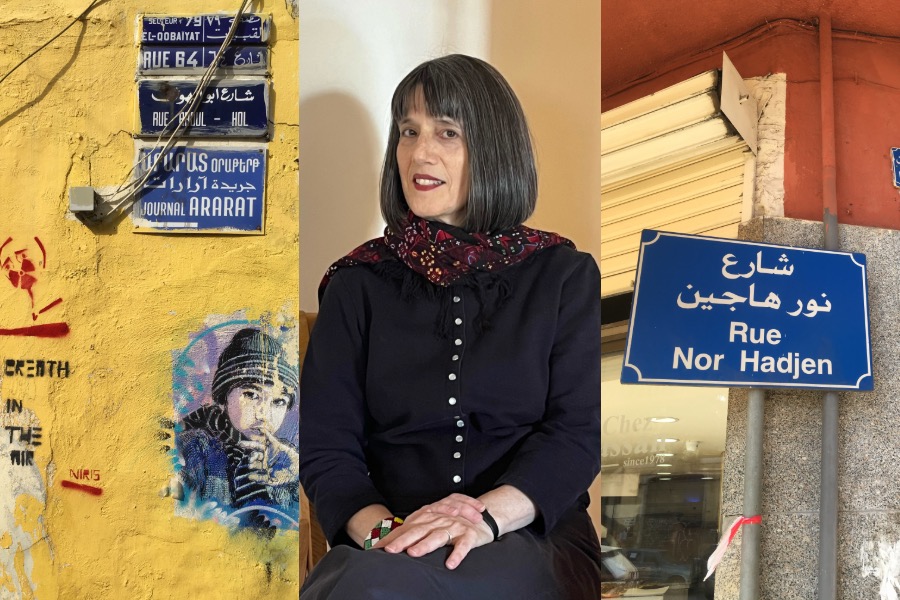
Aristotle has stated that every human being seeks knowledge, and Francis Bacon stated that knowledge is power. We are led to conclude that the governing bodies of ‘old’ and ‘new’ Turks and Turkish rulers remain ‘uneducated’ and teach their citizens ‘uneducation’ and therefore remain with no power. However, the rulers of this century in Turkey seem to believe the contrary, thus overshadowing Aristotle and Bacon, in addition to a huge number of philosophers and psychologists. Armenian lands will be repossessed by Armenians and the Republic of Armenia sooner or later, even if that takes decades or ‘centuries’ simply because the culture of ‘weak citizens’ inculcated within the present ‘boundaries’ of the Turkish Republic will surface willy nilly.
Powerful article. Ms. Gunaysu went to the heart of what genocide commemoration means. She is not fooled by the PR stunt that is “common pain” used by Turkey.
The Armenian genocide is about the genocide of Armenians and it’s denial. It is a decidedly on-sided event.
Once again — Thank you Ayse and thank you Khachig. A deep sincere thanx.
Ayse Gunaysu always reaffirms my faith in humanity with her incomparable empathy for Armenians and her commitment to truth. She is a rare human being. She deserves our praise and appreciation.
Ayse Gunyasu is like the white person who goes out of their way to make white people look bad in an attempt to be accepted by black people. Give me a break.
.
“Are we only responsible for those actions we carry out ourselves, especially if it is not an isolated crime… the murderous setting of denialism?”
.
Yes, we are only responsible for our actions, or inactions (standing around doing nothing during a genocide makes you guilty too, in my opinion). Why else would one feel guilt? I can apologize and feel guilt and shame on my collective ancestors behalf, but what have I done personally to feel guilty about?
.
“In other words, we became, were made, the agencies that enabled the genocide to serve its purpose. The simple fact is that they were exterminated, and we are here to live and to prosper.”
.
Oh, now I see. Me simply being Turkish and being born in Turkey is a crime. Makes sense now. I forgot I got to choose where I was born.
RVDV, why such harsh words against Ayse Gunaysu for simply speaking the truth and acknowledging the great injury committed against the Armenian people in 1915 and that continues to be inflicted through the Turkish campaign of denial?
RVDV: Your opening lines are coarse, insulting and wrongheaded from a number of points of view.
You did not score a bullseye with them. Quite the contrary. And with your absorption with your personal place in all of this (or that of other Turks) you seem to have missed one of the author’s fundamental points: that Armenians as Armenians should be able to openly commemorate 1915 in Turkey without its somehow being an extension of something initiated. sponsored or permitted by ethnic Turks. If you and other Turks support that, then I frankly think the conundrum of blame or shame would be greatly reduced.
We need more Ayse Gunaysus. Not just we Armenians or we Turks but we human beings. It is obvious that Gunaysu, not necessarily uniquely but to a far greater degree than most on the Turkish left, is not mainly interested in speaking out on these issues for the sake of hearing her own voice or to promote herself, but because she is committed to truth and justice. Rather than preaching to or lecturing Armenians she has actually listened to them and learned from them. People like Gunaysu don’t have to make phony declarations about how much they feel Armenians pain. What she is doing means a whole lot more than such empty phrases.
Thanks again Ayse. You are great human being and a great source of hope.
And as of RVDV, despite being an intelligent persoon disappoints me at times.
RVDV:
I agree with Boyajian: you were a bit harsh on Ms. Gunaysu.
If you ever have the opportunity to meet her or listen to her in person, I think you will understand why she has formed her worldview vis-à-vis Turks and Armenians, and you might change your mind.
She came to California in November 2011 to an ANCA Grassroots conference.
I had read her columns before of course, but what she talked about in person was quite unexpected.
When she spoke, the entire conference room went silent: you could hear a pin drop.
Her story made an indelible impression on the several hundred people present (including me).
All I can reveal here is that she has had a very personal experience with AG Denialism, and has sacrificed much personally for her beliefs.
You are more than fair when it comes to AG. But living in US since you were little, you may not have experienced daily what Ms Gunaysu has and probably still does living in Turkey.
Ms. Gunaysu is a very brave and unique woman.
Turks should be proud and honored there is one like her amongst them.
In general I agree with Avery and others,such as Salpi ghazarian,applauding Ms. Gunaysu.may I add like Taner Akcam and a few others…
But like the Armenian saying goes with one(or a few)flower Spring does not come…
Moreover ,even if they are brave enough to utter the taboo amongst their own as well, it leaves one issue to accept that they have THE RIGHT TO FEEL TURKISH.After all,some day -hopefully-if more many many more Turks are convinced that denialism leads them nowhere and it is a Cul de sac,become ready to accept it,then again THEY STAY AS TURKS ON MOST OF THE LAND THEY ARE ON.Stop imagining tiny Armenia with its huge Diaspora is capable of matching up with that country.
We have to think how to confront -AS YET-with their govt.´s adamant stance as to the Genoicde their predecessor Govtg.´s brought upon us-For they are headed that way.Repeat witha few flowers do not expect Spring to come!!!!
it would be indeed very much of help if these few good people excercisesd more of their abiliteis within Turkey proper!!!! or even within their Disporas.Oh yes they now have huge Diasporas, from Germany to France to England to anywhere in EU and over the ocean West to the Americas and even in Aussiland…
Stop being happy with a few flowers.Respect them ,indeed and encourage them Of course.But it stops there….
Right now I am watching meanwhile USArmenia T.V.A talk is going on as rgds the Armenians in Baku(Axerbaijanis insist there are 30,000 Armeniasn there…) I doubt that very much.they say such outrageous lies in order to upset us as much as possilbe.
Use their War rhetoric day in day out to scare our brethren sisters -especially in NK-.Luckily our brave compatriots there do not give a hoot to this kind of big talk!!!
Nonetheless, we must receiprocate.This is we are not good at.Example???
Hey Kardashlar. We are the owners of NAKHIJEVAN, some 40,.000 Nakhijevantsi in RA proper and more than that many overseas, are getting ready to come back and live there and chase you out of there…
it is only a matter of time when KURDISTAN WILL BECOME A REALITY and then we shall settle our land isssue with them kurds amicably ..
One more thing HEIRS OF BAKU OIL WELL OWNERS the Lazarian.s Mantashians, Nercessians, Gulbenkians and Lianazoff(Armenian9 are getting ready to lodge claim as to their lawfull wells and ..our Huge Diaspora is to support them ..
Thje Ar,menian Diaspora may soon lodge their claim FOR BLOOD MONEY !!!!
If we prefer not to do the above ,then there turco azeris will become convinced that there is no such thing as HAY TAHD OR CLAIMS,compensations etc.,so git a move on please!!!!
Brilliant. Simply an expression of compassion for Armenians or it could be for any other persecuted minority.
In hindsight, I may have come off as more insulting than intended. But I stand by other remarks. Here is what Ms. Gunaysu says:
.
“Even if our families are thoroughly clean in this respect, we are the members of a group who reproduced, proliferated, and reinforced its dominance as a majority in the absence of the Armenians and other Christian peoples annihilated just for this purpose.”
.
Simply being a Turk is guilt by association? Is this not what she is claiming here? This is a fundamentally flawed mentality if I understand the point here correctly.
RVDV, its about empathy, not guilt. You may personally have little to feel guilty for, but you have every reason, as a Turk/Kurd/human being to feel compassion, empathy and a desire to rectify a great crime.
RVDV:
“Simply being a Turk is guilt by association?”
No! but I see not, I hear not and say nothing about the Armenian Genocide is!
There are good Turks and bad Turks. There are good Armenians and bad Armenians. There are good Jews and bad Jews. There are good Eskimos and bad Eskimos. There are good Pygmies and bad Pygmies. Be aware of the matrix and realize its potentials. Bear in mind that the world on the whole is led and controlled by Godless, self-seeking groups and individuals who, will stop at nothing to further their own agendas, even at the expense of besmirching the collective name if need be. As a result, while group consciousness has its place in life, discernment is paramount. Some things are good/beneficial taken in small doses, but outright harmful when indulged in large quantities. This is the nature of the physical world we all live in.